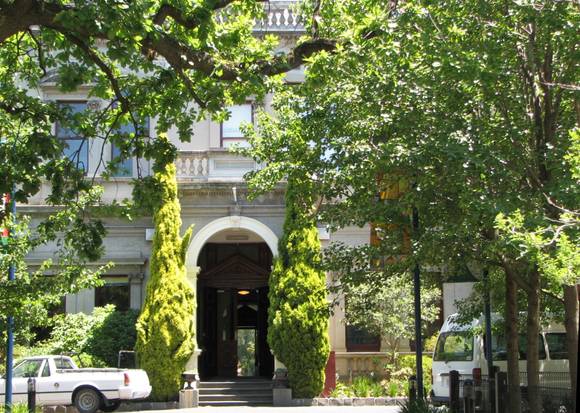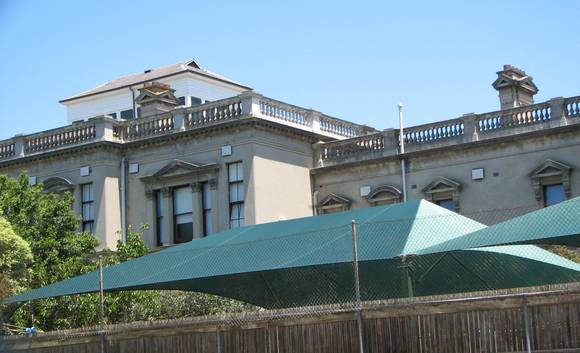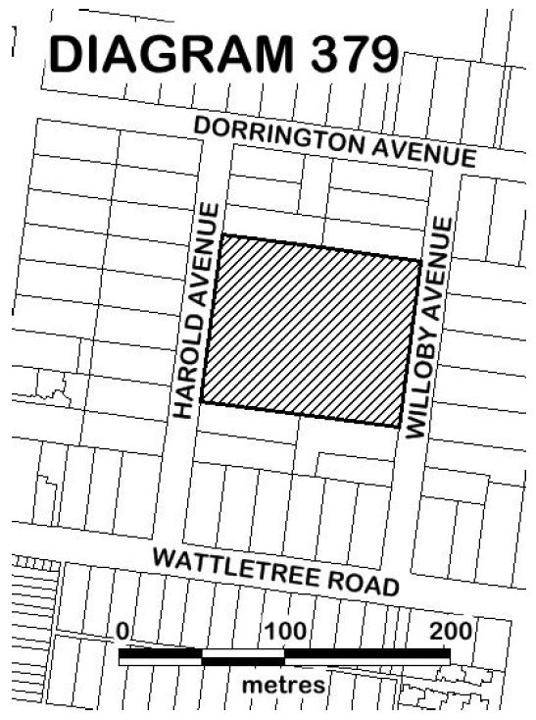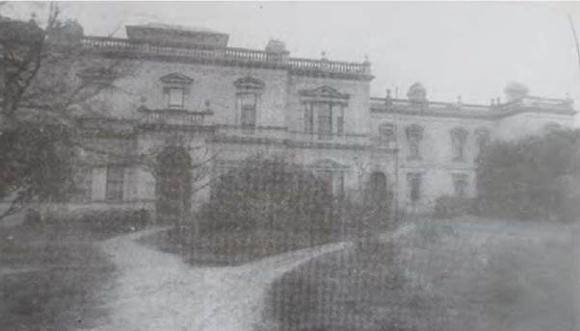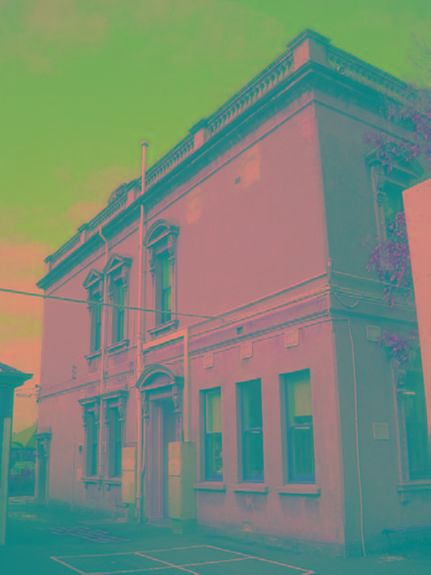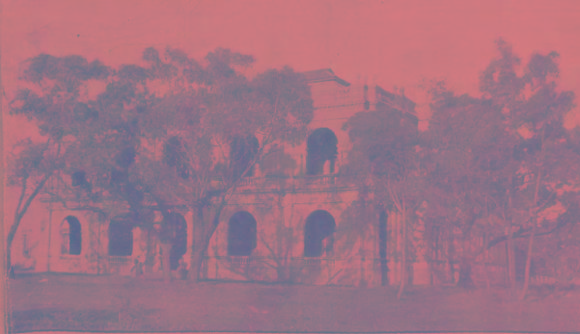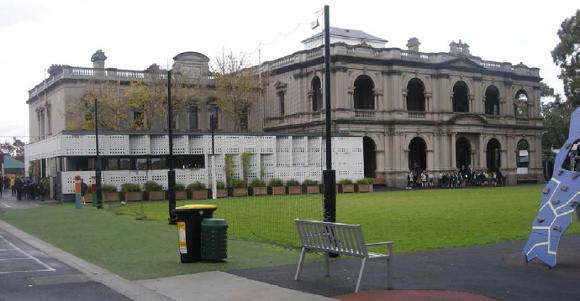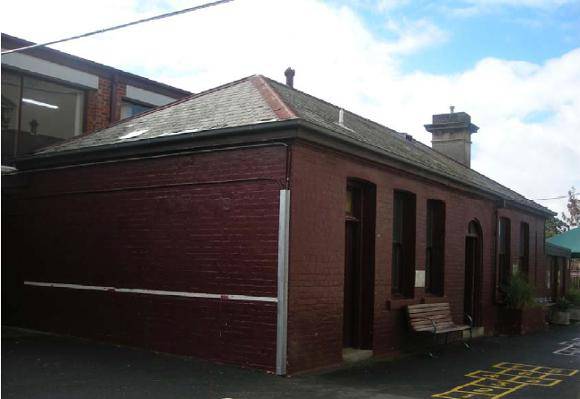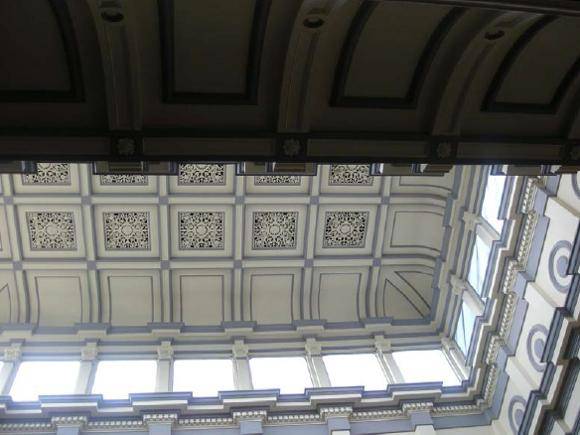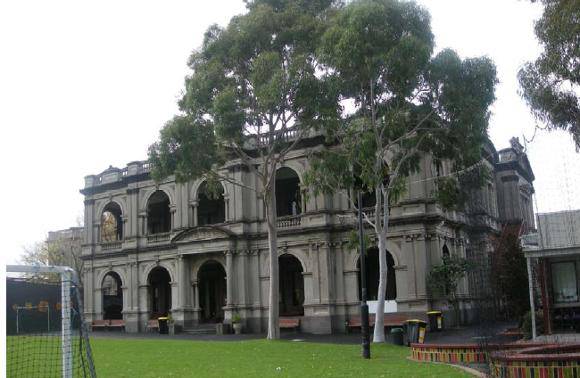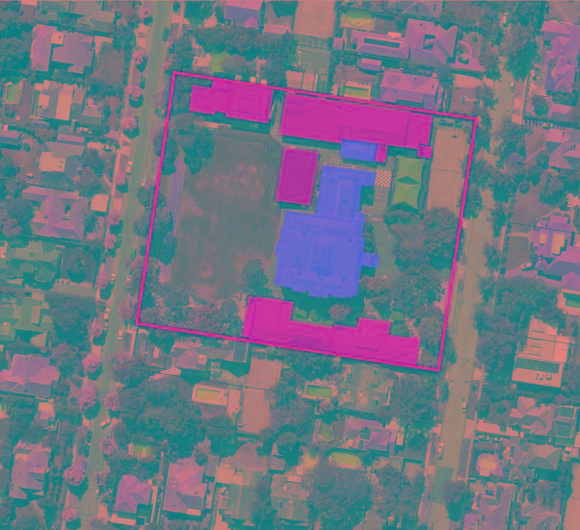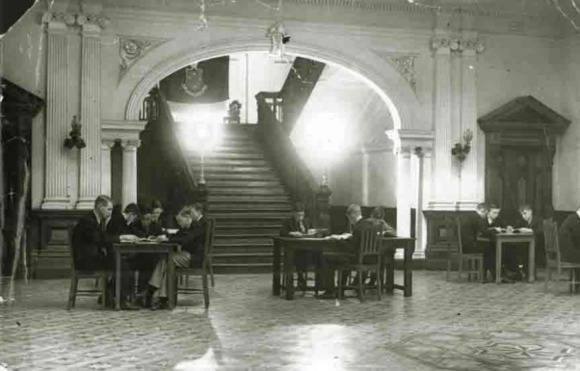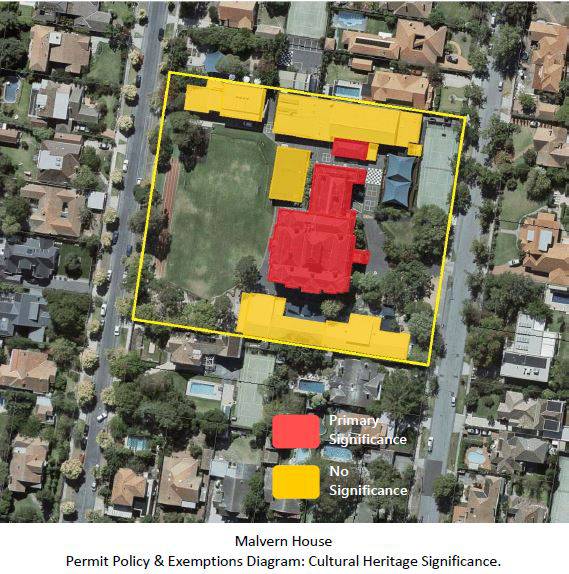| Back to search results » | Back to search page » |
|
MALVERN HOUSE
Statement of Significance
WHAT IS SIGNIFICANT?
Malvern House (also known as Valentines) is a large Italianate two
storey mansion in ornate stuccoed brick with a servants¡¯ wing and a
detached laundry building.
HOW IS IT SIGNIFICANT?
Malvern House satisfies the following criteria for inclusion in the
Victorian Heritage Register:
Criterion A
Importance to the course, or pattern, of Victoria's cultural history.
Criterion D
Importance in demonstrating the principal characteristics of a class
of cultural places and objects.
Criterion H
Special association with the life or works of a person, or group of
persons, of importance in Victoria's history.
WHY IS IT SIGNIFICANT?
Malvern House is historically significant as a monument to the
extravagance of Melbourne's land boom of the 1880s and early 1890s.
Commissioned in 1891 by solicitor, land speculator and later
politician John Mark Davies (1840-1919), it was designed by English
born architect Thomas Watts (1827-1915) and originally named
Valentines. Davies made his fortune in land speculation and Malvern
House was one of the largest of the boom period mansions constructed
in Melbourne, and is comparable to the scale of the mansion Stonington
[VHR H1608] in Glenferrie Road, Malvern, built 1890, and used as
Victoria's vice regal residence between 1901 and 1931. Malvern House
became a symbol of the financial crash during the 1890s as Davies was
brought to the brink of bankruptcy and he and his family lived in the
servants' wing of the partially completed mansion for some time.
[Criterion A] Malvern House is architecturally significant as an unusually grand
Italianate mansion which demonstrates the extravagance in mansion
building at the height of Melbourne's land boom of the 1880s and early
1890s. Its most striking features are its impressive scale, austere
Italianate expression, towering, top-lit ballroom and elaborate
interiors. While it is a late and somewhat unremarkable example of the
Italianate mode, it is distinguished by its size and forms a landmark
within Melbourne's inner eastern mansion belt. The place is a fine
example of the work of the long-established architect Thomas Watts,
whose works include the pioneering Italianate design for Bontharambo
[VHR H0359] in Wangaratta. While mansions are reasonably common in
Melbourne's inner east they rarely survive on the scale found at
Malvern House. [Criterion D] Malvern House is historically significant for its associations with
English-born solicitor, land speculator and politician John Mark
Davies (1840-1919). Davies played a prominent role in public life in
Melbourne and gained substantial personal wealth as a speculator in
Melbourne's land boom of the 1880-90s. The 1890s economic crash
interrupted his career, bringing him to the brink of bankruptcy and
embroiling him in financial scandals. Davies rebuilt his career and
served in the Victorian Legislative Council, becoming Victoria's
Attorney General in the early 1900s. He was made a Knight Commander of
the Order of St Michael and St George (KCMG) in 1918 and was given a
state funeral in 1919. [Criterion H]
Group
Education
Category
School - Private


